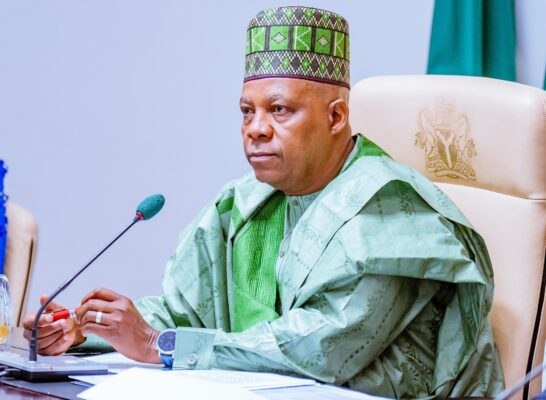Vice President Kashim Shettima says the Economic and Financial Crimes Commission (EFCC) has recovered more than ₦500 billion worth of assets since President Bola Ahmed Tinubu assumed office, describing the development as a major milestone in Nigeria’s anti-corruption drive.
Shettima disclosed this on Monday at a high-level judicial workshop in Abuja, attended by judges and justices from across the country. The event was jointly organised by the EFCC and the National Judicial Institute to strengthen the judiciary’s role in combating financial crimes.
According to the Vice President, the success recorded by the anti-graft agency is a result of the Tinubu administration’s policy of non-interference in the operations of key institutions.
“We’ve empowered anti-graft agencies with the independence they need. That’s why the EFCC has secured over 7,000 convictions and recovered more than ₦500 billion,” Shettima said.
He explained that the government’s hands-off approach has given investigators and prosecutors the freedom to pursue cases without fear or favour, unlike in the past when political influence often hindered anti-corruption efforts.
The Vice President revealed that proceeds recovered from corrupt individuals and organisations are being channelled into critical national development initiatives such as the Students’ Loan Scheme and the Consumer Credit Initiative, both aimed at expanding access to affordable education and soft loans for Nigerians.
“We’re using the recovered assets to empower ordinary Nigerians,” he said.
Shettima also noted that the welfare and remuneration of judicial officers have been improved under the current administration, with further support measures in the pipeline.
He urged members of the judiciary to uphold integrity and lead by example, warning that corruption undermines institutions and affects all citizens regardless of status.
“There are no special roads or hospitals for judges. When corruption destroys the system, we all suffer the consequences,” he said.
The Vice President called for stronger collaboration among the executive, legislature, and judiciary to ensure that accountability remains central to governance and that no one is above the law.





